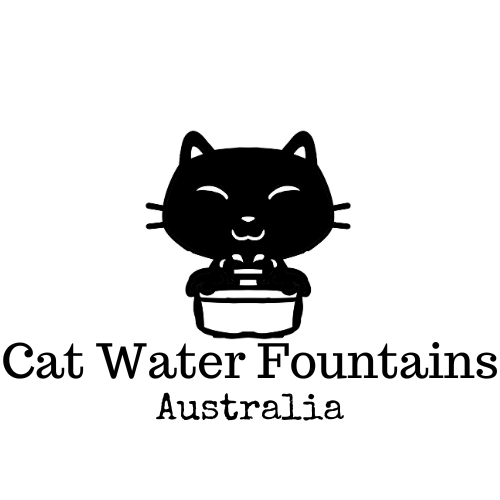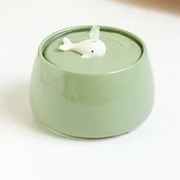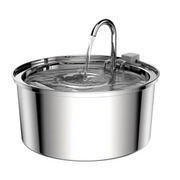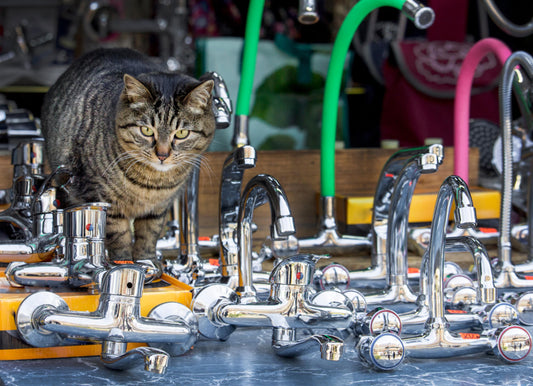10 Common Cat Health Diseases and How to Prevent Them
Cat Water Fountains Australia
Share This Article
As responsible cat owners, ensuring the health and well-being of our feline companions is of utmost importance. By understanding common cat health issues and taking proactive preventive measures, we can help safeguard our cats from potential ailments. This article aims to provide valuable information and preventive strategies for ten common cat health problems, offering guidance to cat owners who want to prioritise their pets' well-being.
1. Obesity
Obesity is a prevalent health issue among cats and can lead to various complications. To prevent obesity, it is crucial to maintain a healthy weight through portion control, a balanced diet tailored to a cat's nutritional needs, and regular exercise. Engaging your cat in playtime activities and providing environmental enrichment can help keep them physically active and mentally stimulated.
2. Dental Disease
Dental hygiene plays a significant role in a cat's overall health. Neglecting dental care can lead to dental disease, causing pain and potential systemic infections. Regular brushing, dental check-ups, and the use of dental-friendly diets or treats can help maintain good oral health and prevent dental issues.
3. Urinary Tract Infections
Urinary tract infections (UTIs) can be distressing for cats and may result from various factors, including poor litter box hygiene or inadequate water intake. Preventive measures for UTIs include providing fresh water, ensuring a clean litter box environment, and considering a balanced diet that promotes urinary health.
4. Parasites (Fleas, Ticks, and Intestinal Worms)
Parasites such as fleas, ticks, and intestinal worms can pose significant health risks for cats. Regular flea and tick treatments, deworming as recommended by a veterinarian, and maintaining cleanliness in the cat's environment can help prevent infestations and the associated health complications.
5. Feline Lower Urinary Tract Disease (FLUTD)
FLUTD is a collective term for various conditions affecting the feline urinary system. Maintaining proper hydration, creating a stress-free environment, and providing appropriate litter boxes with different options can help prevent FLUTD. Regular veterinary check-ups are crucial to detect any underlying issues early.
6. Respiratory Infections
Respiratory infections, such as feline viral rhinotracheitis, are highly contagious among cats. Preventive measures include vaccination, minimizing exposure to sick cats, and maintaining good hygiene practices, such as regular cleaning of litter boxes and bedding.
7. Hairballs
Hairballs can cause discomfort and digestive issues in cats. Regular grooming to minimize shedding, using hairball prevention products, and providing a high-fiber diet can help prevent the formation of hairballs and promote healthy digestion.
8. Diabetes
The prevalence of diabetes in cats is increasing, often linked to obesity and poor diet. Preventive strategies include weight management, feeding a balanced diet, and scheduling regular veterinary check-ups to monitor blood glucose levels.
9. Kidney Disease
Kidney disease is a common health issue in aging cats. Preventive measures include maintaining hydration by providing fresh water, feeding a balanced diet that supports kidney health, and scheduling regular kidney function testing with a veterinarian to detect any early signs of kidney disease.
10. Hyperthyroidism
Hyperthyroidism is a common endocrine disorder in older cats, characterized by an overactive thyroid gland that produces an excessive amount of thyroid hormones. This condition can lead to weight loss, increased appetite, restlessness, increased thirst, and other symptoms. Preventive measures for hyperthyroidism include regular veterinary check-ups to monitor thyroid function, feeding a balanced diet, and discussing treatment options with your veterinarian if the condition arises. Treatment options may include medication, dietary management, or surgical intervention, depending on the severity of the condition.
By understanding and addressing these ten common cat health issues, cat owners can play a vital role in safeguarding their pets' well-being. It is essential to consult with a veterinarian for personalised advice and to maintain regular check-ups to monitor the cat's health status continuously. With proper preventive measures and proactive care, we can ensure our cats lead long, healthy, and fulfilling lives.










